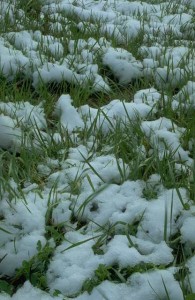 They say that the Sami people, who live in the land closest to the Arctic Circle, have over a thousand words for snow, but none for just ‘snow’ – as we refer to it. I have often felt that our word ‘love’ could use at least 1,000 words to replace how we generally use it, and yet the closest I’ve discovered for a more specific meaning is when I heard someone ask, “Do you love him or do you love-love him?”
They say that the Sami people, who live in the land closest to the Arctic Circle, have over a thousand words for snow, but none for just ‘snow’ – as we refer to it. I have often felt that our word ‘love’ could use at least 1,000 words to replace how we generally use it, and yet the closest I’ve discovered for a more specific meaning is when I heard someone ask, “Do you love him or do you love-love him?”
We could do better!
And words don’t – can’t – describe the experience of grief. We’re told there are five stages of grief: denial, anger, bargaining, depression, and acceptance. Perhaps that’s so – but none of these words describes the actual, very personal, experience – it just describes certain stages. Your anger is different than mine – yours may be felt through shrieks of rage; mine might be a white hot ache.
Your denial might be through dancing and singing; mine might be a catatonic numbness. We may share a process – and, as everyone knows who has experienced death, the process of grief is not linear. It’s more like an expanding balloon, those five classic stages layering on top of each other, now this one, now that one, and finally settling around us like a cocoon of acceptance – or at least an acceptance of the inevitability of it all.
Or perhaps when someone we love dies we are thrust inside an enormous cocoon of “grief” (what’s the right word?) and slowly those stages are lifted away and we’re back to being ourselves again.
How can the brief word “grief” encompass such an experience?
_______
Writing Practice – Making Up Words
 Shakespeare made up hundreds of words – why don’t we?
Shakespeare made up hundreds of words – why don’t we?
The point is not that there are no words – it’s that there are too many. Or they are yet unnamed. Or they change – and now most words need to become verbs. I’m resialing. I’m grangering. Now it’s time to bergraner, but I feel too prussed.
I don’t seek peace – I’m peacing.
Make up your own words for an intense emotion you’re feeling. What does betrayal really sound like? What does anticipation really sound like – when you specifically anticipate something coming up soon?
I also recommend that you subscribe to Wordsmith.org. This daily word – along with its meaning and etymology – that shows up in your inbox is presented with such lightness, unusualness, and affection that you immediately get a sense that the marvelous Anu Garg has a love for words – not just an interest in them. Do you know what a “yob” is and where the word came from?
 Have you wondered what is a lacuna?
Have you wondered what is a lacuna?
Lacuna
noun: An empty space, gap, missing part, an opening.
ETYMOLOGY: From Latin lacuna (hole, gap), from lacus (lake). Earliest documented use: 1663.
[An earlier version of this WriteSpa was posted in 2011 (“There Are No Words For It”) and it’s also included in my book of writing practices: Writing Through the Year.]
